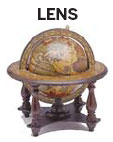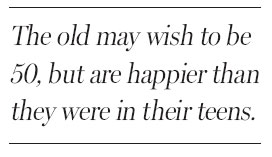Insights of the elderly
Updated: 2012-02-12 07:51
By Kevin Delaney(The New York Times)
|
|||||||||
The quest for the meaning of life has led seekers to mountaintops, monasteries and materialism. But a sometimes overlooked source of wisdom is those who have simply lived the longest.
The elderly have survived their share of blunders, triumphs, joys and sorrows, and most picked up some life lessons along the way. So what sort of wisdom arises from having spent 70, 80 or more years on the planet?
For starters, the safe and secure path does not always lead to the most fulfilling life.

As The Times's David Brooks wrote in a series of columns based on the ruminations of older people, they often lament the risks not taken. One man confessed that he had spent his life as "a spectator" and wished he'd been more of "an adventurer."
Tellingly, Mr. Brooks added that few seniors regretted having taken any risks, even those that had not turned out well. As one man put it, "Career-wise, it was a rocky road, but if diversity is the spice of life, then mine resembled hot Indian curry."
Others did not regret leaving loveless marriages; few recommended marrying young. One man shared a hard lesson learned: "It took me twenty years of my fifty-year marriage to discover how unwise it was to attempt to remake my wife."
In another informal study into elderly insights, The Times's Jane Brody found that job satisfaction trumped money. "The most important thing is to be involved in a profession that you absolutely love," one aged reader told her, "and that you absolutely look forward to going to work every day."
Another told her, "Don't waste your time worrying about getting old."
This advice is supported by studies revealing that as people enter their later years, the majority of them are actually happier. According to a Gallup study of 340,000 Americans published in 2010, many people felt pretty good about themselves around age 18. Then - perhaps as the vicissitudes of life kicked them around - their self worth began a steady decline. Fortunately, satisfaction re-emerged sometime in the 50s. Most people in the study reported being happier in their 80s than they had been in their teens.

And a majority said that they had never returned to the emotional lows of their early 50s.
"It's a very encouraging fact that we can expect to be happier in our early 80s than we were in our 20s," Andrew J. Oswald, a professor of psychology at Warwick Business School in England, told The Times. "And it's not being driven predominantly by things that happen in life. It's something very deep and quite human that seems to be driving this."
Nevertheless, all that middle-aged misery can make for some good memories. As Patricia Cohen, the author of "In Our Prime: The Invention of Middle Age," wrote in The Times, studies have shown that stress does indeed peak in the middle years - but so too does confidence in one's own abilities. Which may be why middle age still ranks as the time of life to which most people over 65 would like to return.
So anyone caught in the tailspin of a chronic midlife crisis should cheer up. From the wisdom-infused perspective of the elderly, it may one day seem like the golden age.
But then every life passage has its blind spots. As Oscar Wilde once said, "The old believe everything, the middle-aged suspect everything, the young know everything."
For comments, write to nytweekly@nytimes.com
(China Daily 02/12/2012 page9)